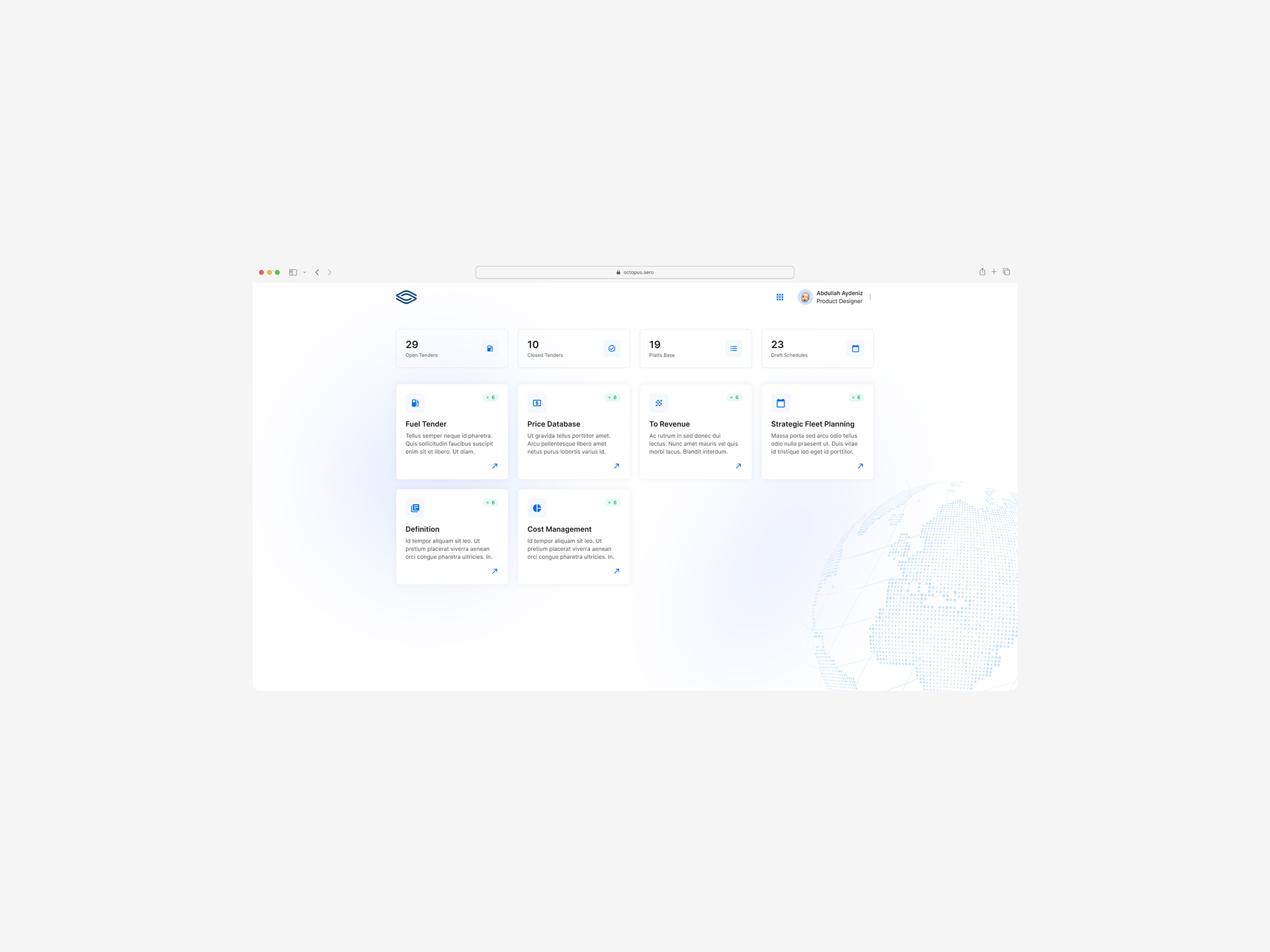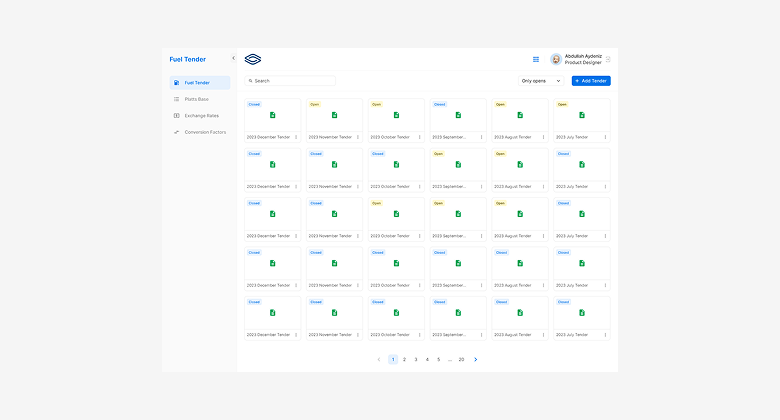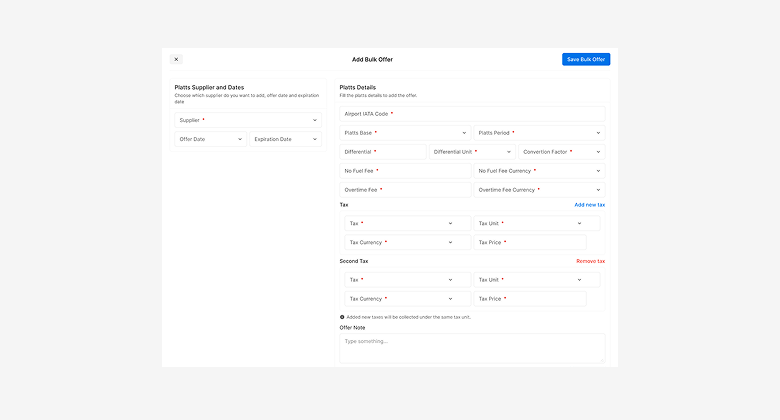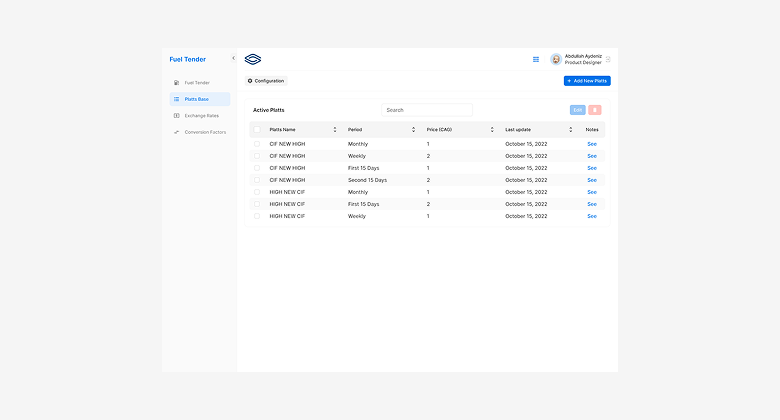Octopus
Gözen Digital Aviation
Senior Product Designer
2023
Abdullah Aydeniz
Project overview
Octopus is a comprehensive, multi-module SaaS platform built internally at Gözen Digital Aviation to digitize, centralize, and streamline the company's complex operational workflows.
The platform replaces outdated, manual processes with a modern, integrated software solution. Octopus is composed of six core modules, each targeting a critical business function: Fuel Tender, Price Database, To Revenue, Strategic Fleet Planning, Definition, and Cost Management. It serves as the central nervous system for the company's internal operations teams.
Problem
Before the development of Octopus, Gözen Digital Aviation's most critical and complex operations were managed entirely through a web of interconnected Excel spreadsheets. While functional at a small scale, this method became completely unsustainable as the company's operations grew in complexity and volume.
This reliance on spreadsheets created numerous critical issues:
- Lack of a Single Source of Truth:
Different teams and individuals had different versions of the same spreadsheet, leading to data conflicts, confusion, and decisions based on outdated information.
- High Risk of Human Error:
Manual data entry, copy-pasting, and complex formulas were extremely prone to errors that could have significant financial or operational consequences.
- No Real-Time Collaboration:
Processes that required input from multiple people, such as the back-and-forth negotiation of fuel prices in the "Fuel Tender" process, were incredibly cumbersome. It involved endless email chains and manually merging different spreadsheet versions.
- Poor Scalability and Performance:
As the datasets grew, the Excel files became slow, unwieldy, and prone to crashing, hindering productivity.
- Data Insecurity:
Sensitive operational and financial data stored in spreadsheets lacked the robust security, access controls, and audit trails of a proper software platform.
This system was not just inefficient; it was a significant operational risk that limited the company's ability to scale effectively.
Goal
The primary goal of the Octopus project was to execute a complete digital transformation of Gözen's core operations, moving them from a fragile, manual system to a robust, automated platform.
The key objectives were:
01. Centralize All Operations
Consolidate all six critical operational areas into a single, integrated SaaS platform to eliminate data silos.02. Create a Reliable Single Source of Truth
Ensure that all users are accessing the same real-time, accurate data, improving the quality and speed of decision-making.03. Streamline Complex Workflows
Design dedicated modules, like the Fuel Tender module, to provide a dynamic and efficient environment for complex tasks like multi-party negotiations.04. Reduce Operational Risk
Minimize the potential for human error and enhance data security through automation, validation, and proper access controls.05. Build a Scalable Foundation
Create a sustainable platform that could grow with the company, handling increasing data loads and operational complexity without a drop in performance.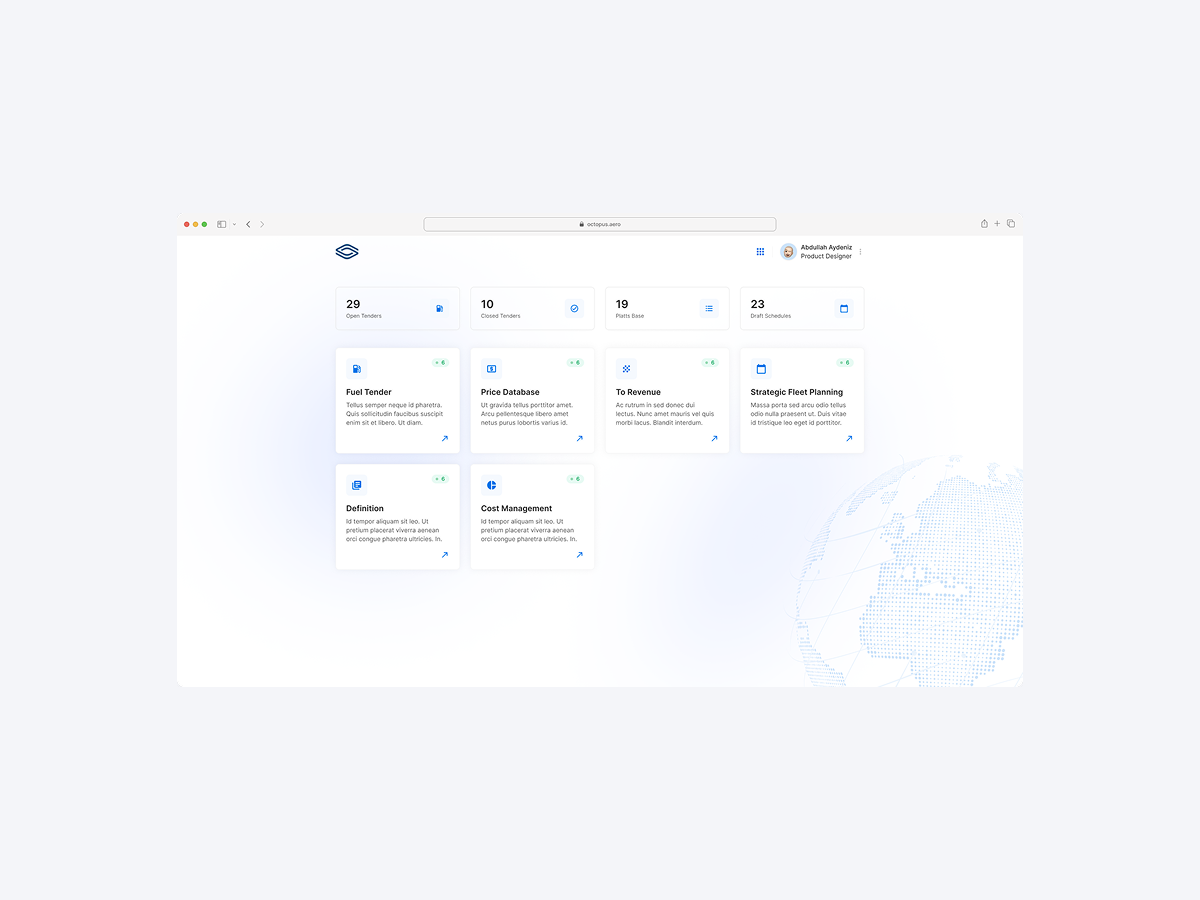
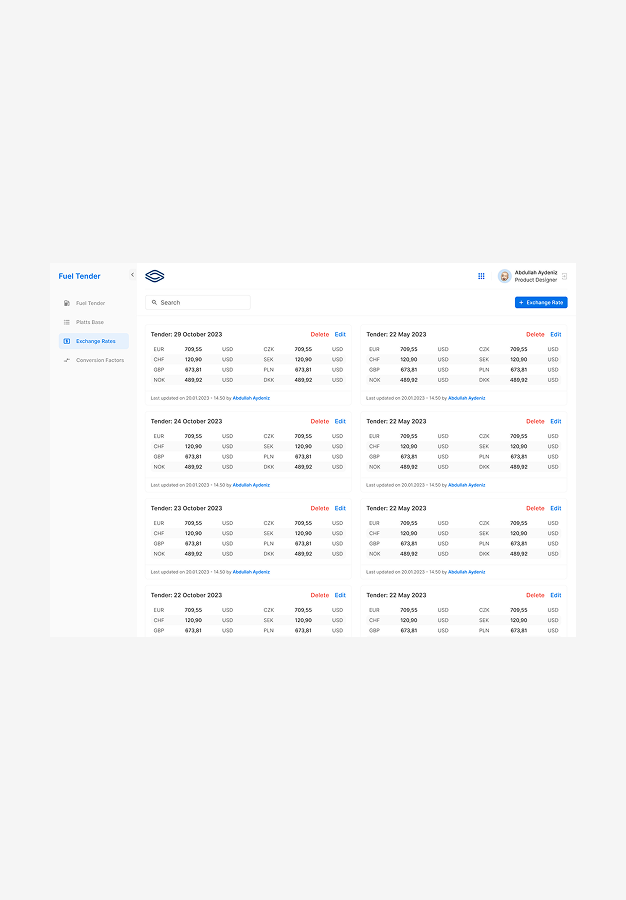
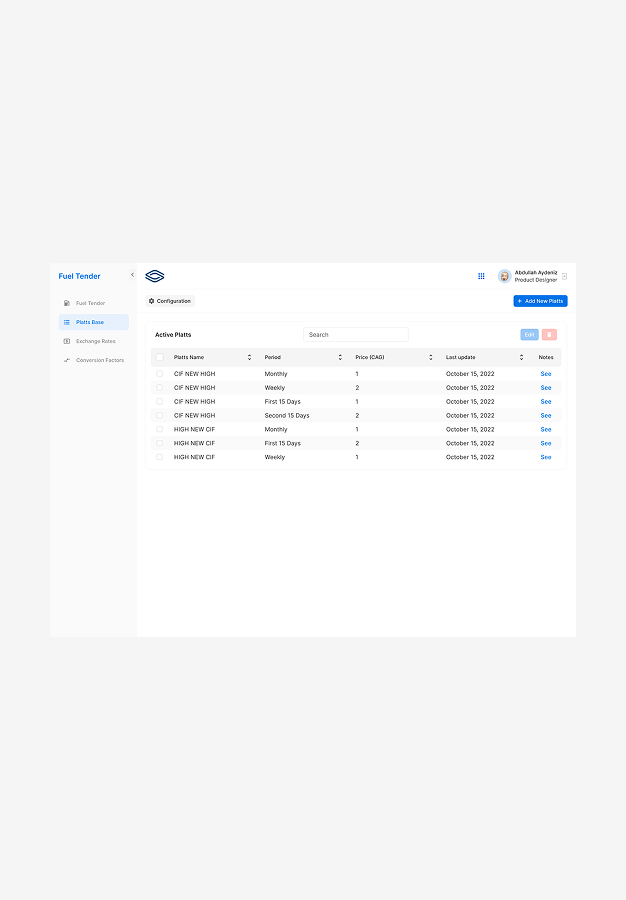
Outcome
The launch of Octopus has fundamentally modernized Gözen Digital Aviation's internal operations, replacing chaos with clarity and efficiency.
The fragmented world of Excel sheets has been successfully replaced by the Octopus platform. Teams across all six module areas now work within a single, cohesive environment, dramatically improving cross-departmental visibility and collaboration.
Complex processes that once took days of manual effort are now streamlined. For example, the Fuel Tender module allows the operations crew to manage fuel bargains and negotiations in a live, interactive environment, providing instant visibility and eliminating the confusion of email and spreadsheet versions.
With Octopus as the single source of truth, the company now operates on reliable, up-to-the-minute data. This has increased the confidence and accuracy of everything from strategic fleet planning to daily cost management.
The platform has provided a stable and robust foundation that can easily scale to meet future demands. The company is no longer constrained by the limitations of spreadsheets and is well-positioned for future growth.





